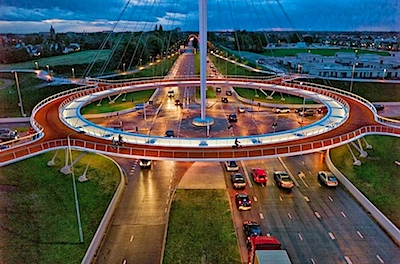Police officers in the City of Charlottesville have doubled in the past two years the number of tickets they have issued to bicyclists, Charlottesville Tomorrow reports.
First thoughts:
– Good. As a bicycle advocate and rider, seeing cyclists cutting in and out of traffic, on and off sidewalks, blowing through red lights, etc. makes it harder for the law-abiding cyclists.
– Really? The number of times I’ve watched a car badly blow through a red light while a police officer sits there watching the offense is itself almost criminal.
– Bad. Points on a driver’s license because of these infractions? Don’t you have to have a license in order to get points on said license?
– Good. Maybe this will serve as a discussion point for educating the police, cyclists and drivers.
– Is there something in the Code of Virginia for distracted pedestrians? Maybe they could target UVA students on the Corner; they’re dangerous, too.
Maybe the City can add this discussion point to their newest $50k study on creating and integrating “complete streets.†(it would be awfully nice to have this discussion include how to traverse City/County lines rather than myopically looking solely at each locality’s needs.)


